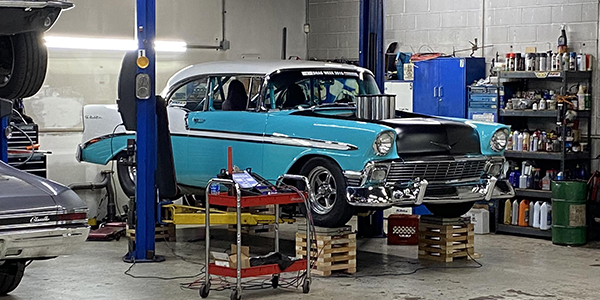I’ve had complaints of a ticking noise on some Chrysler 3.2L and 3.5L engines. Can you offer any solutions?
The AERA Technical Committee offers the following information regarding a ticking sound on 1998-2004 Chrysler 3.2L and 3.5L VIN J, G, K, M and V engines. This noise is associated only with cold start-up and generally lasts only for two to three seconds.
The cause of this noise may be related to the associated movement between the exhaust swivel pad, retainer and rocker arm. To help reduce the likelihood of this type of ticking sound, revised components are available. This information applies only to exhaust locations, which are different than intake assemblies. The exhaust adjuster, rocker arm swivel kit is available as p/n 05135237aa. It is important to note that this repair may be made on the vehicle.
If this repair has already been made on a particular engine, the swivel pad retainers will be colored blue and the swivel pads will be copper in color on the exhaust rocker arm assembly. The revised components are different than the original components.
Remove rocker arm assembly bolts.
Remove exhaust rocker arm assemblies. NOTE: To prevent air ingestion into lash adjusters, avoid turning rocker arm assembly upside down or placing pressure on the lash adjuster.
Remove the retainers and swivel pads from each exhaust rocker arm (Figure 1).
Remember, this bulletin only applies to the exhaust rocker arms. Do not install these new parts in the intake as damage may occur.
Install the new swivel pads and swivel pad retainers on all exhaust rocker arms (see Figure 2). NOTE: Do not reuse original yellow retainers. Replace all exhaust swivel pads and retainers as a set.
Install the rocker arm assemblies and torque the rocker shaft mounting bolts to 275 in.lbs (31 Nm).
I’ve had some complaints of pre-ignition on some MerCruiser 3.7L engines. Any ideas?
The AERA Technical Committee offers the following information regarding revised initial ignition timing for MerCruiser 3.7L engines. This revision is to help in preventing engine damage due to the unknown quality of gasoline that is being used today.
Engines were originally set at 8° BTDC. Piston failures in the No. 1 and No. 4 cylinders were common. The root cause of those failures is the unknown quality of gasoline for the known amount of ignition timing and compression being used. The poorer the quality of gasoline the more likely a piston will burn. Poor fuel burns differently and in these cases it has caused piston failures that appear like over-advanced ignition timing. Due to the quality of gasoline declining over time and the engine failures that have resulted, the initial timing should be set to 4° BTDC for these engines.
MerCruiser refers to the 3.7L engine as 3.7 LX, MIE 470, MCM 470, 485, 488, 165, 170, 180 and 190. The timing information has been updated in current MerCruiser factory service manuals published after 1987.
For information on receiving all of AERA’s regular monthly technical bulletins and other association services and benefits, call toll free 888-326-2372 or send an e-mail to [email protected]. AERA’s Web site is www.aera.org.


